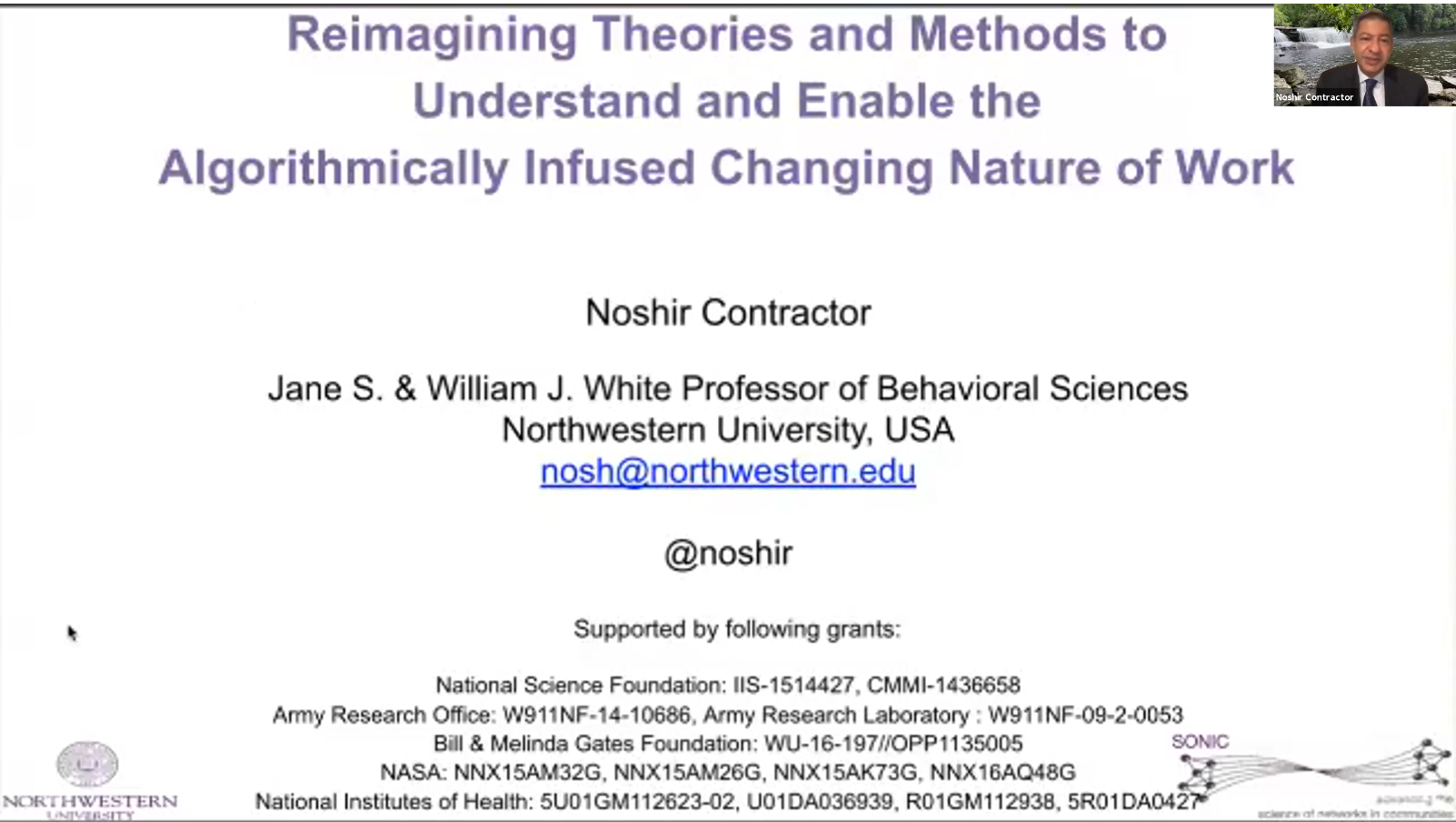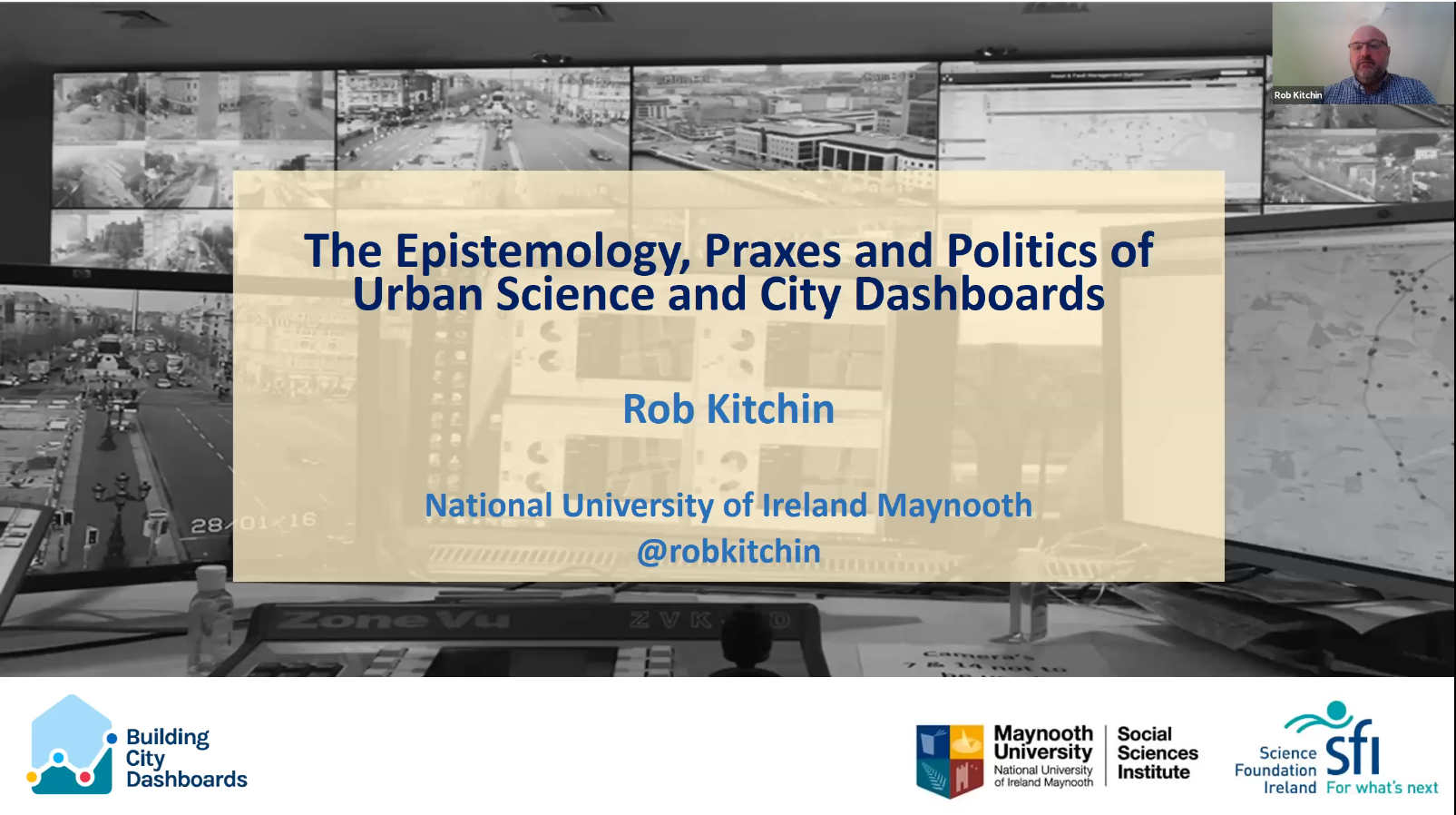FASS Global Research Forum: Day 2 Keynotes by Professor Noshir Contractor and Professor Rob Kitchin
September 21, 2021


Professor Noshir Contractor (Northwestern University) delivered the FASS Global Research Forum’s third keynote, ‘Reimagining Theories and Methods to Understand and Enable the Algorithmically Infused Changing Nature of Work’. He discussed the history of technology and how it has affected the workplace, particularly from the 1990s onward, and focused on enterprise social media (ESM). Prof Contractor went on to explain that ESM has multiple affordances that allow novel methods of information seeking, sharing, producing, and analyzing in the workplace, and brought up Google’s work on ‘People Analytics’. Compounding this, algorithmic affordances in the workplace have affected both how people work and how they research work, he noted. Prof Contractor elaborated that workplace team-building has utilized algorithms to boost team effectiveness at a variety of levels. He also brought up relational analytics, how they can benefit people, teams, and organizations, and even predict social relationships.
Prof Contractor pointed out that technology has enabled us to test theories at scale, and that we now can generate theories about phenomena that are growing in prevalence, like collective intelligence. Moreover, these new theories include considerations of variables that were previously unavailable, such as those utilized in a study of brain connectivity dynamics during social interaction to determine whether and how they reflect the structure of a social network. He added that data is being reimagined as well, and touched upon sociometric badges, neurosources, and his project to examine the meaning of work life by exploring online games.
Furthermore, methods are being reimagined, as Prof Contractor discussed. Networks can now be studied using a relational event model, for instance, which was not possible in the past. Similarly, teams used to be only studied using simple graphs or networks, but now can be studied using hypergraphs. In addition, computational models enable the novel modeling of positive and negative affect ties among groups, using data on people’s behavior. Finally, Prof Contractor recommended employing methodology that combines theory-driven and data-driven approaches. He advised that a diverse set of disciplinary and methodological approaches be used to address complex, diverse, and challenging societal problems.

The fourth keynote, ‘The Epistemology, Praxes and Politics of Urban Science and City Dashboards’, was delivered by Professor Rob Kitchin (Maynooth University). He discussed urban science (including critical urban science), and its computational methodology and connection to quantitative social science. Prof Kitchin explained that urban science uses urban big data and data analytics to identify causal relationships and predict how city systems work.
Prof Kitchin shared his 2016-2020 Dublin ‘Building City Dashboard’ project, and work on a virtual model of Dublin, where maps and other urban data are modeled and visualized in 3D. He explained that the city dashboards act as cognitive tools that improve a user’s ‘span of control’ over large amounts of varied data that are always in flux. Moreover, they allow users to explore characteristics and structures of data sets, and interpret trends. Ideally, the dashboards reveal what is happening in cities in great detail and in real time, through data that is objective, trustworthy, and factual. In this way, the complexities and disorderliness of urban areas can be translated into rational, detailed, ordered, and systematic forms of knowledge.
Prof Kitchin discussed critiques of urban science, including that it is too reductionist, mechanistic, essentialist, and deterministic, and ends up collapsing diverse individuals and complex, multidimensional social structures and relationships to abstract data points and universal formulas and laws. He added that it willfully ignores the metaphysical aspects of life, and the role of politics, social structures, ideology, culture, and capital. Among other criticisms, urban science presumes that the majority of urban issues are best addressed via technical fixes instead of political, fiscal, civil society, policy, and legal interventions. Following from this, limits to what data can reveal, and how, how much, and how often data can be collected, as well as other limitations reduce the extent we can trust urban dashboards. Instrument and human error and bias must be taken into account, as well as, among other things, the fact that data is often published without metadata (measurement, sampling frame, handling, veracity, uncertainty, error, bias, reliability, calibration, lineage). Prof Kitchin’s concluding advice on improving how urban science is done included that its researchers draw on critical social theory to frame how their studies are conducted, how findings are interpreted, and how the knowledge is employed.
Watch Prof Contractor’s keynote, ‘Reimagining Theories and Methods to Understand and Enable the Algorithmically Infused Changing Nature of Work’, here.
Watch Prof Kitchin’s keynote, ‘The Epistemology, Praxes and Politics of Urban Science and City Dashboards’, here.

